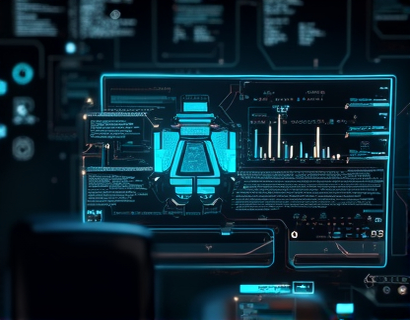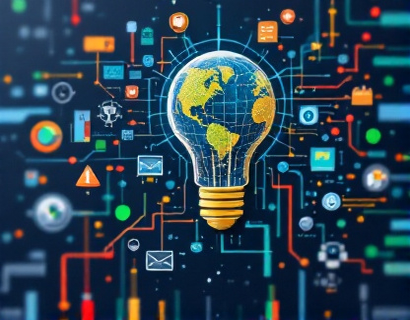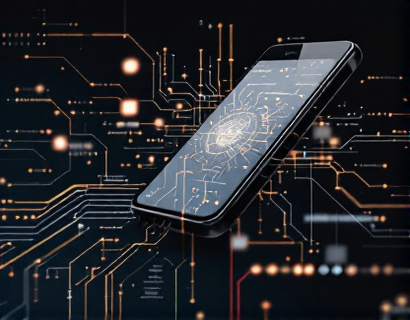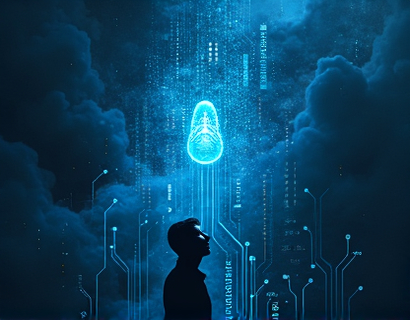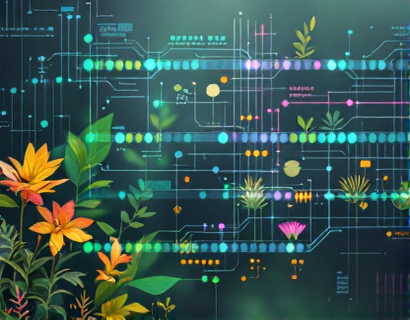AI-Driven Eye Health Chatbot: Revolutionizing Access to Specialized Ophthalmology Knowledge
The integration of artificial intelligence in healthcare has opened new avenues for patient education and support. One such innovation is the AI-driven eye health chatbot, designed to serve as a safe and informative resource for individuals of all ages. This advanced tool leverages the power of AI to provide specialized ophthalmology services and industry knowledge, ensuring that content remains accurate and safe, particularly for children and students.
Understanding the Need for Reliable Eye Health Education
Eye health is a critical component of overall well-being, yet many people lack access to reliable and comprehensive information. With the increasing prevalence of eye conditions and the aging population, the demand for educational resources has never been higher. Children and students, in particular, benefit from having a trusted source of eye health knowledge, enabling them to make informed decisions about their eye care and understand the importance of regular eye examinations.
AI-Powered Chatbots in Eye Health Education
The introduction of AI-driven chatbots represents a significant leap forward in providing accessible and personalized eye health education. These chatbots are designed to interact with users through a conversational interface, answering questions, and offering insights into various aspects of ophthalmology. By utilizing natural language processing and machine learning algorithms, these chatbots can understand and respond to a wide range of inquiries, making complex medical information more digestible and engaging.
Key Features of an AI-Driven Eye Health Chatbot
- 24/7 Availability: Users can access eye health information at any time, ensuring that questions are answered without delays.
- Personalized Responses: The chatbot adapts to the user's level of knowledge and previous interactions, providing tailored information and recommendations.
- Content Verification: All information provided is rigorously checked for accuracy, ensuring that users receive reliable and up-to-date content.
- Child-Friendly Interface: Specialized versions of the chatbot are designed to be safe and understandable for children and students, using simple language and engaging visuals.
Benefits for Children and Students
Children and students are particularly vulnerable to misinformation and may lack the resources to seek accurate eye health knowledge. An AI-driven eye health chatbot addresses this gap by offering a safe and educational platform. Here are some specific benefits:
For children, the chatbot serves as an introductory tool to learn about eye health, the importance of eye exams, and how to maintain good eye care habits. Interactive and gamified elements can make learning enjoyable and memorable.
Students, especially those in medical or health-related fields, can use the chatbot to deepen their understanding of ophthalmology. The platform can provide detailed explanations of eye conditions, treatment options, and the latest research findings, all sourced from credible medical databases.
Ensuring Content Accuracy and Safety
The accuracy and safety of the information provided by the chatbot are paramount. To achieve this, the platform employs several measures:
- Expert Review: All content is reviewed by ophthalmologists and medical professionals to ensure accuracy and relevance.
- Regular Updates: The database is continuously updated with the latest research and guidelines in eye health.
- Parental Controls: For child users, parental controls can be implemented to restrict access to certain topics and ensure a suitable learning environment.
- Feedback Mechanism: Users can provide feedback on the information received, helping to identify and correct any inaccuracies promptly.
Exploring Specialized Ophthalmology Services
The chatbot serves as a gateway to specialized ophthalmology services, helping users navigate the complex world of eye care. Here’s how it can assist:
Firstly, the chatbot can provide detailed descriptions of various eye conditions, including symptoms, causes, and treatment options. This information empowers users to understand their eye health better and make informed decisions when consulting with healthcare professionals.
Secondly, the chatbot can offer guidance on finding the right ophthalmologist or eye care center. Users can input their location or specific needs, and the chatbot will suggest reputable practitioners and facilities, complete with reviews and ratings.
Industry Knowledge and Trends
Beyond individual eye health, the chatbot also keeps users informed about industry trends and advancements. This includes:
- Emerging Technologies: Information on the latest technologies in eye care, such as laser surgery, contact lenses, and virtual reality therapy.
- Research Breakthroughs: Summaries of recent studies and clinical trials that could impact future eye health treatments.
- Preventive Care: Tips and best practices for maintaining eye health, including diet, exercise, and screen time management.
Interactive Learning and Engagement
To make eye health education engaging and interactive, the chatbot incorporates various features:
Interactive quizzes and assessments can help users test their knowledge and identify areas for improvement. Visual aids, such as diagrams and infographics, can simplify complex concepts and make the information more accessible.
Additionally, the chatbot can facilitate virtual consultations, allowing users to ask questions directly to ophthalmologists in real-time. This feature is particularly valuable for those in remote areas or with limited access to specialized care.
Building Trust Through Transparency
Trust is essential in healthcare, and the chatbot addresses this by being transparent about its capabilities and limitations. Users are informed that while the chatbot provides valuable information, it is not a substitute for professional medical advice. In cases where more detailed or personalized guidance is needed, the chatbot can recommend consulting a healthcare professional.
Transparency also extends to the chatbot’s development and maintenance. Users can access information about the technologies and data sources used, ensuring that they understand the foundation of the information they receive.
Conclusion
The AI-driven eye health chatbot represents a significant advancement in providing accessible and accurate eye health education. By catering to the needs of children, students, and the general public, this tool helps bridge the gap in eye health knowledge and promotes better eye care practices. As technology continues to evolve, the potential for AI in healthcare education is vast, offering a safer and more informative resource for all users.






